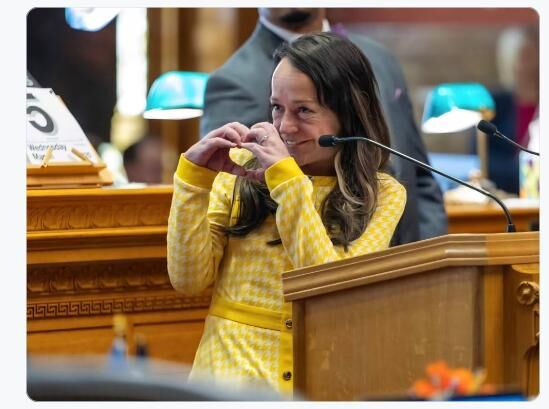Colorado Supreme Court rejects business group’s challenge to secretary of state on fees

The Colorado Supreme Court on Monday rejected a claim from the Colorado chapter of the National Federation of Independent Business that business fees collected by the Secretary of State’s Office are actually taxes and hence should be approved by voters under the state Taxpayer’s Bill of Rights.
The Supreme Court’s decision comes just two months after a federal appeals court granted a request for an appeal by a group of former elected officials who seek to have TABOR declared unconstitutional.
In its unanimous ruling Monday, the court said the 2014 lawsuit “provides us another opportunity to examine the implications” of TABOR.
“At issue now is how Colorado’s Department of State charges for some of its services — for example, licensing businesses — to then fund its general operations, which include overseeing elections,” which NFIB, a small-business advocacy group, argued was unconstitutional under TABOR.
The question the court examined was whether the Department of State’s occasional decisions to adjust its business fees — which has been in place since 1983, well before TABOR was approved by voters — violates TABOR’s requirement that any tax increases first win voters’ OK.
NFIB argued that the fees are really a tax, because some of those fees cover the general operations of the Department of State, such as elections, in addition to financing the department’s business division.
The NFIB also argued that because the fees are really a tax, any increases would have to be submitted to voters for approval.
“There was no evidence to establish that any post-TABOR adjustments (adjustments to the fee after TABOR passed in 1992) resulted in a new tax, tax rate increase, or tax policy change directly causing a net revenue gain,” the court wrote in its opinion. “The Secretary [of State] has the discretion to set, increase, decrease, or temporarily suspend the Department’s charges without legislative oversight.”
The court noted that a lower court initially granted summary judgment to the Department of State, examining only whether the funding scheme was unconstitutional.
“In doing so, it declined to determine whether the charges were taxes because it concluded the funding statute wasn’t subject to TABOR at all,” the Supreme Court ruling stated.
The appellate court disagreed in its reversal of the lower-court decision.The appellate court declined to determine whether TABOR applied to increases in business and licensing charges, and so the matter was off to the state’s high court.
The Supreme Court reminded the parties that TABOR doesn’t apply to all taxing, revenue, and spending actions. Because it is prospective, it only applies to any “new taxes,” “tax rate increases,” or “tax policy changes” that directly causing a net revenue gain.
And those terms — new taxes, tax rate increases or tax policy changes — aren’t defined in TABOR, so the court has, over the years, tried to provide guidance. In one case, the Supreme Court opinion pointed out that it “suggested that there may not be one all-encompassing definition of either ‘tax’ or ‘tax rate.'” And in a recent ruling involving the TABOR Foundation, the court pointed out that “new tax” and “tax policy change” implied something significant, not just a minimal change.
In its arguments, NFIB pointed out that in 1996, the Secretary of State began using revenue from the business fees to pay for elections. That constituted a new tax or new tax policy, NFIB argued. But the Supreme Court said there was no evidence submitted that showed an increase in fees to pay for those specific functions.
NFIB also showed changes in the fees over the years, but the court said that those adjustments, which it called necessary to cover a fourfold increase in service requests, didn’t “create a new tax, tax rate increase, or a tax policy change directly causing a net revenue gain,” so “then the adjustments don’t trigger TABOR.”
“We are of course disappointed with the court’s decision, however, Colorado businesses should be thoroughly disappointed with the court’s lackadaisical attitude in examining the fee-versus-tax issue,” said Tony Gagliardi, Colorado state director for NFIB.
Karen Harned, executive director of the NFIB Small Business Legal Center, said the decision “leaves unresolved whether and to what extent the Secretary [of State] may continue increasing fees on the small business community; however, our lawsuit has put the secretary on notice that we will scrutinize increased charges going forward.”














